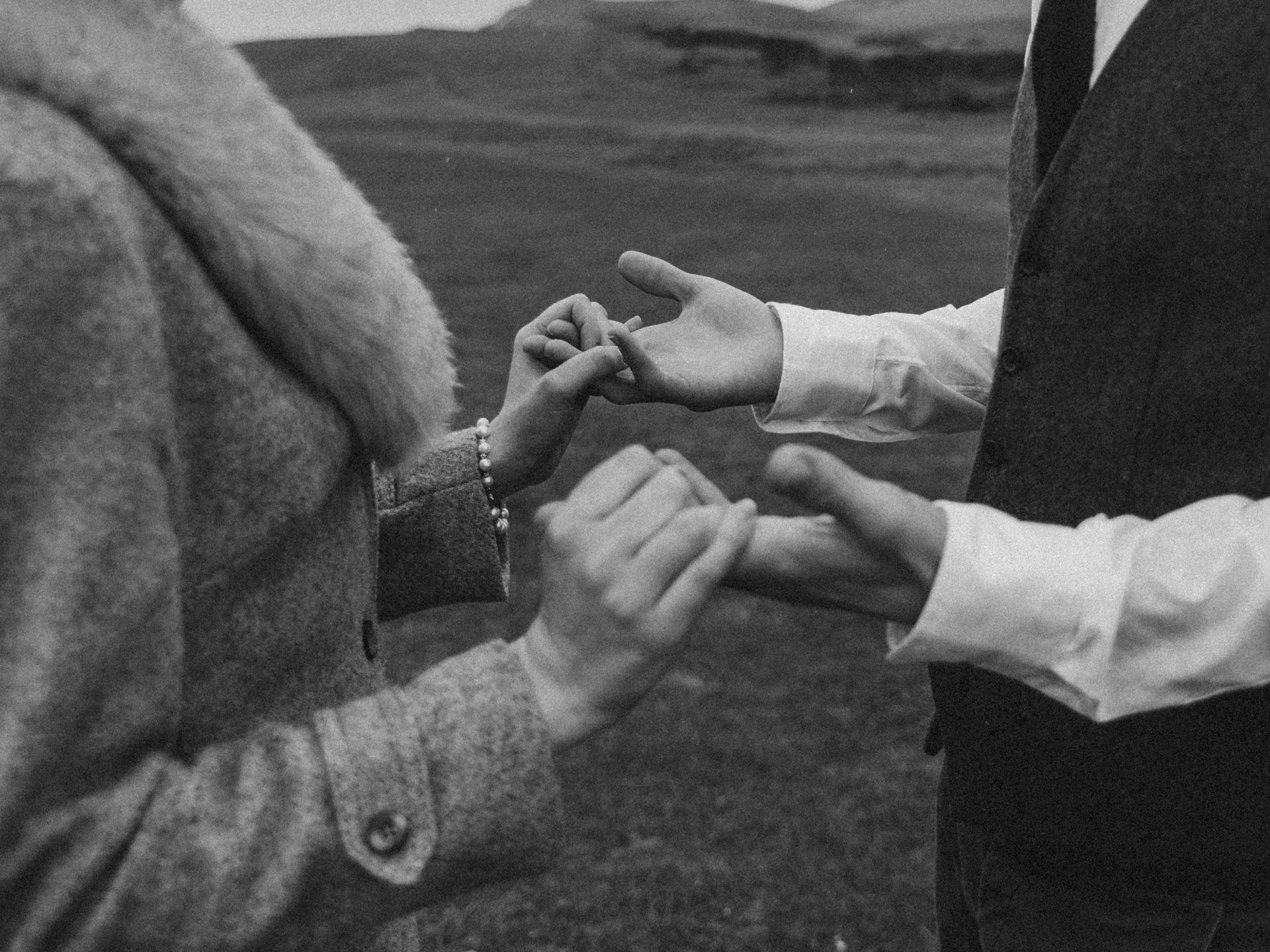The Problem of Unhealthy Spirituality
Robyn Black • February 10, 2021
Source: Emotional Healthy Spirituality, Pete Scazzero

On Tuesday we started Kids in the Kitchen and it was a joy to be back. I was talking about eggs to the kids. I had one egg that had been soaked in vinegar over night and was sqidgy, you know spongy to touch, but when we broke it open there was a completely normal yolk and white inside. Another egg was completely black on the outside – we colour it in with texta and the kids always hate the look of it. But when we opened it, it was a beautiful egg on the inside. Another egg I had looked perfect on the outside, but when I broke it open, there was nothing there – no yolk and no white. The kids eyes are always wide and their surprise is real. They asked me – did you know when you bought it there was nothing inside?? But of course, what they didn’t know was that I had put a tiny hole at the top and a tiny hole at the bottom and blown out the contents of the egg before-hand. But the point is this, like eggs sometimes people can be different on the outside to what they are on the inside. Everything may look good and fine outside but everything may be crumbling away on the inside.
People are not always as they appear to be and it can be very confusing. Pete Scazzero has written a few books on Emotionally Healthy Spirituality and his main point is this
‘You can’t be spiritually mature if you’re emotionally immature’. Many people might know all the scripture references and have gone to church all their lives, and they may look to be very holy and Godly. But if those people are emotionally immature, then they’re unable to put into practice all the things they’ve learnt about God, and on the inside there’s disaster waiting to happen.
So today, we're going to talk about the problem of emotionally unhealthy spirituality. Our life is a lot like an iceberg. The part we see of an iceberg is only ten% of the entire iceberg. 90% is below the surface and that’s the part that causes the damage to things it comes into contact with...like the Titanic! Likewise, it is the things deep beneath the surface in our lives, those things that others don’t see, and sometimes we can't see, that cause the real damage in our relationship with God, ourselves and wreaks havoc on others.
Pete Scazzero, says of himself, "I became a Christian at 19, but for the next 17 years, as a Christian, the truth was, the gospel didn't extend very far beneath my own iceberg. I continued to live on the surface. And I experienced its destructive effects. And I think it's part of what God used in my own life to begin to show me some things. It's been a very slow process for me to come out of that into some health. And I'm still working on it."
Of course Pete isn't the first person to live an emotionally unhealthy life. In the Old Testament King Saul started out well as the first King of Israel, but then things went pear-shaped. We're going to pick up the story in 1 Samuel chapter 15, beginning at verse 20. In the story, he is given a command by God to muster the armies of Israel, hundreds of thousands of troops, and to go up against the Amalekites, and completely wipe them out – everything and everyone.
So Saul goes, musters the armies of Israel, and heads out on the mission. But he doesn't quite follow all Gods instructions. He does most of it. In verse 9, we’re told that instead of wiping out all the sheep and cattle, and the king and all of the Amalekites, "Saul and his men spared Agag’s life and kept the best of the sheep and goats, the cattle, the fat calves, and the lambs—everything, in fact, that appealed to them. They destroyed only what was worthless or of poor quality.” (NLT)
I guess to Saul, it didn't make sense to lose all those financial resources. And so Saul made a decision and didn’t do quite everything that God asked him to. Most of it…he did most, but not all. And then the prophet Samuel shows up. I’m reading from 1 Samuel 15:19-22 (MSG), Samuel said to Saul…
“So why did you not obey GOD? Why did you grab all this loot? Why, with GOD's eyes on you all the time, did you brazenly carry out this evil?" Saul defended himself. "What are you talking about? I did obey GOD. I did the job GOD set for me. I brought in King Agag and destroyed the Amalekites under the terms of the holy ban. So the soldiers saved back a few choice sheep and cattle from the holy ban for sacrifice to GOD at Gilgal—what's wrong with that?" Then Samuel said, Do you think all GOD wants are sacrifices— empty rituals just for show? He wants you to listen to him! Plain listening is the thing, not staging a lavish religious production.”
The first thing Saul does as an emotionally unhealthy person here is he says, "No" to reflection and self-awareness. Saul’s in complete denial – Samuel says ‘why didn’t you do what God said’ and Saul shoots back “I did the job GOD set for me.” But he hadn’t. Complete denial. And he’s defensive. Instead of admitting he did the wrong thing, he said, “So I brought a few things back, what’s wrong with that??” Well, there’s only one thing wrong with that, it wasn’t what God wanted him to do. But Saul can’t admit that. In the middle of all this, he continues to believe he's doing God's will.
And even after he finally ‘gets’ that he’s really offended God by his behaviour he kind of blames other people. Even though he’s the King, he says in 1 Samuel 15:24 (MSG), “I cared more about pleasing the people. I let them tell me what to do.” So Saul, are you saying it’s everyone else fault?
Surely you’ve met people who did something that hurt or offended you, and they respond with ‘well, it’s because you provoked me’. If you hadn’t said this, or if you hadn’t done that, I wouldn’t have hurt you’.
This is a cancer in our souls. Many people who have said they were Christians, continued to explode in anger and say ‘well, if you’d been a better person I wouldn’t have lost my temper’. Or they ripped off the Corps financially and said ‘well, if the Salvation Army paid me properly I wouldn’t have had to do it.’ It’s someone else’s fault!
This is emotional immaturity, people are often in denial about responsibility for their own actions and show a complete lack of self-awareness and self-reflection.
The second thing Saul does is he says "No" to cultivating his relationship with God. He has a public life in God, but you never see any evidence of a private life in God.
Reading from 1 Samuel 15:22 (MSG) “Then Samuel said, Do you think all GOD wants are sacrifices— empty rituals just for show? He wants you to listen to him! Plain listening is the thing, not staging a lavish religious production.”
In other versions Samuel says to Saul ‘to obey God, is better than sacrifice’. The Hebrew word for “obey” and the Hebrew word for “listen” are the same word! Saul doesn’t listen and he doesn’t obey.
Saul probably thought he’d done enough for God. God told him to go defeat the Amalakites and he had. Wasn’t that enough?? But there was something missing in his receiving from God, something missing in the hearing, something missing in perhaps the attitude he had in serving God. Perhaps he didn’t listen well, perhaps he had attitude as he served God.
We are all free to listen or not listen as well. I mean you be here this morning thinking, ‘finally a great drying day, and when I’ve hung out my washing, I’ll duck down to the shops…’, or you may think ‘oh, that’s a pearler of a message… for someone else’. But at the end of the day, you and I turn up here each week, to focus on cultivating a personal relationship with God. Sure we might enjoy the sparkling company around us as well. But each week you and I need to be asking, "What's God saying to ME?"
Saul had a relationship with God. But he also had other things happening inside him. Maybe he thought he knew better than God on this matter, maybe he thought God wouldn’t care or find out if he kept a few things. None of that was right. God knew best, God did care about Saul’s disobedience and God did find out. What it tells me, is that Saul ceased to listen and cultivate his relationship with God.
Nobody can cultivate your life in God except YOU. We have church and lots of things going on around us, but it's your responsibility. It's about developing that space in your life for God, which we’ll be discussing over the next weeks.
Whilst the 10% of our lives that’s visible to others may look different because of our relationship with Jesus, we might be nicer or not swear or we may pray, the 90% below the surface, that is, the messages you grew up with in your family, expectations of life and the ways we’ve learnt to respond to pain, compel us in life and can remain untransformed by Jesus.
We’re going to listen to “he will hold me fast” and if we’re to open our lives up to the work of the Holy Spirit, we have to know that Jesus will hold us fast.
Sermons For The Moment

This is an interesting Psalm – another psalm of ascent. We spoke about these Psalms of Ascent a few weeks ago. They were songs the Jewish people sang as they made their way to Jerusalem to go to the temple, through the forest, along the tracks, camping by the roads. And I believe songs like this kept them focussed and kept their spirits up. I can imagine days of walking together, tiring, boring, hot and dusty. And singing some of these Psalms keep them focussed on the faithfulness of God. Much better then eye spy for the kids. Journeys are not all their cracked up to be even if the destination is worth it. As you know, when I was growing up we always holidayed at Bawley Point past Ulladulla, and in those days it was about a 4 hour drive from Sydney. We always left later than we meant to…and the last 20 mins was on a dirt road. One year when I was probably about 4 years old it was dark by the time we got to the dirt road, and half way along the dirt road, was a dodgy wooden bridge over a river. I think part of the bridge had been damaged and we had to wait a bit in the pitch black darkness before we could proceed. Dad was out with a torch ensuring the bridge was safe to drive on and mum and us 4 kids were sitting in the darkness – no street lights, no moonlight. Of course, you might be able to guess what I said to mum in that car, with fearful crying…you’ve probably heard it from kids before. I said ‘I want to go home’. Mum said to me, ‘we can’t go home Robyn, we’re almost there’. In truth, after the bridge we had the last 10 minutes of a 4 hours journey left. We safely crossed the bridge and we were OK. But I remember it. I remember the feeling of being scarred in the darkness. I remember not liking this journey at all. Even though I always loved the destination. Well this psalm celebrates the end of the journey and the arrival at the destination. Psalm 126:1-3, “When the Lord brought back his exiles to Jerusalem, it was like a dream! We were filled with laughter, and we sang for joy. And the other nations said, “What amazing things the Lord has done for them.” Yes, the Lord has done amazing things for us! What joy!” Before we can understand the laughter and joy of the Israelites, we have to understand their journey. This Psalm looks back to when they arrived back in Jerusalem after 70 long years in Babylon. The captives had experienced great sorrow and mourning in exile. We read these heartbreaking words in Psalm 137: “Beside the rivers of Babylon, we sat and wept as we thought of Jerusalem. We put away our harps, hanging them on the branches of poplar trees. For our captors demanded a song from us. Our tormentors insisted on a joyful hymn: “Sing us one of those songs of Jerusalem!” But how can we sing the songs of the Lord while in a pagan land?” (Psalm 137:1-4). Their tormentors demanded they sing joyfully, but they were like – that’s impossible, it doesn’t come from our heart. So they just sat by the waters of Babylon and wept. But now by an amazing work of God they were suddenly back in Jerusalem. And so their joy came from their heart. The wait was over, the journey was complete. “We were filled with laughter, and we sang for joy.” The journey is the hard bit though isn’t it? I was reminded of this, this week. An Officer couple I was speaking to, said that their teenager said some very hurtful things to them. Stuff like, ‘you make my life worse’. As they spoke to me, I did very little but listen and pray with them. They do have other supports in their life as well, already seeing a psychologist. But what I was thinking in my head as they were speaking was ‘oh the teenage years, I’d forgotten them’. Though we have 2 wonderful young adults in P and K, they were times when it was more than tense. K wears her heart on her sleeve, and to this day apologises for some of the things she said to me. And P, you wouldn’t know what he was thinking, and then all of a sudden all his thoughts and feelings for the last 3 years would come out like molten lava everywhere. A few days later I checked in to see how the couple and their teenager were going. I mentioned in passing about teenage years and very briefly about our experiences. I didn’t want to make it all about me. But I said teenage years can be painful and those years can really hurt everyone in the family. Teenager included. They know that we have a good relationship with P and K and they said to me, you know, this is helpful. It gives us hope. I was like, yep, this too shall pass. Because when you’re in the midst of the journey of pain and sorrow, you sometimes wonder if there’s light at the end of the tunnel. If you’ll laugh again or experience joy again. You begin to wonder, “Is this all that God has for me? Will I ever be happy again?” And here’s the promise in Psalm 126:4-6, “Restore our fortunes, Lord, as streams renew the desert. Those who plant in tears will harvest with shouts of joy. They weep as they go to plant their seed, but they sing as they return with the harvest.” When you are going through a time of deep sorrow, Psalm 126 is strong medicine for your soul. It carries a powerful message of hope. It tells you that times of trouble and sorrow do not last. It tells you that God will turn your sorrow to joy and your tears to laughter. If you are going through a challenging time right now, I pray that this psalm will speak to your heart this morning. Let me tell you right up front, whatever you’re going through, it will get better. God will change your tears to joy. This week I found something I wrote about 10 years ago. I had written it on a piece of paper and there was a whole reflection about my life. At the time we had my mum living with us, she had dementia, and mostly I remember the good times and the fun times with her. I was also the Corps Officer at Glebe and Bob was the manager at William Booth House. After a page of writing I had written something like this “I’m often anxious, I’m usually stressed, I have eczema on my eyelids and ulcers in my mouth. I always feel pressed.” I went out to Bob in the lounge room and I’m like, ‘oh my goodness, eczema on my eyelids and ulcers in my mouth’, often anxious, usually stressed. The thing is, my life feels a long way from that now, and I’d forgotten what that part of my journey felt like. I’m sure when I was there I couldn’t look ahead and see a time of joy…but the truth is that “Those who plant in tears will harvest with shouts of joy. They weep as they go to plant their seed, but they sing as they return with the harvest.” This too shall pass. ‘Yes, the Lord has done amazing things for us!’ says verse 3. God is faithful – he does the healing, the restoring, he brings the streams in the desert that renews and brings fruitfulness. I don’t need to tell you – it takes time. Today, I’m praying for a work of healing in your life, a gradual restoration of joy, of laughter. Like me as a kid, sometimes we don’t like parts of this journey at all. Even though we know our destination is good. And ultimately, we have a destination like no other and that’s the promise of God. A home in heaven made possible through Jesus. May God bless you this week as you look to Him, listen to Him, find your hope in Him and find courage and healing in your journey.







